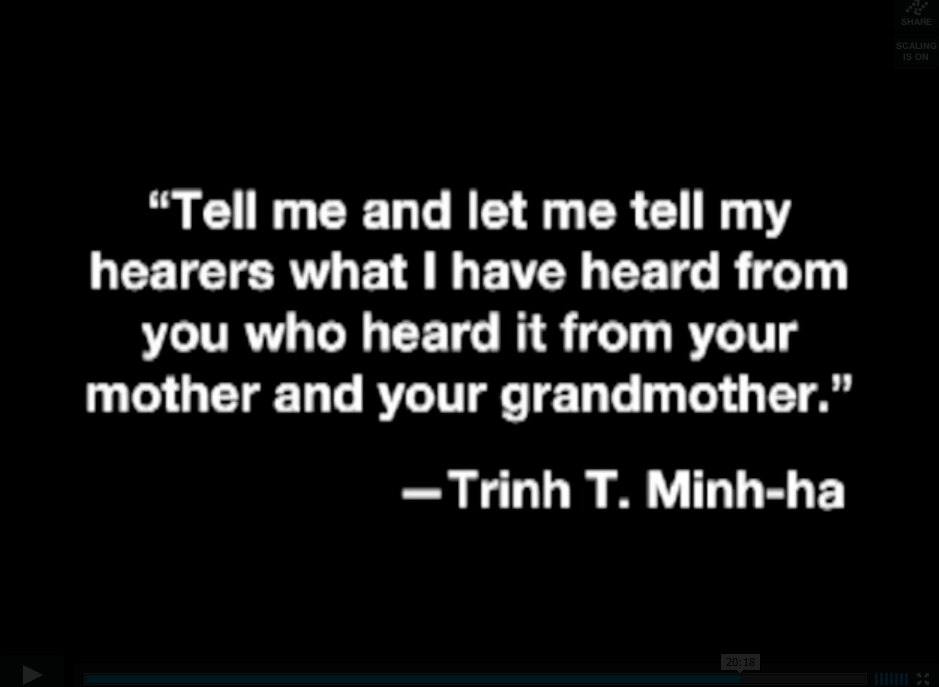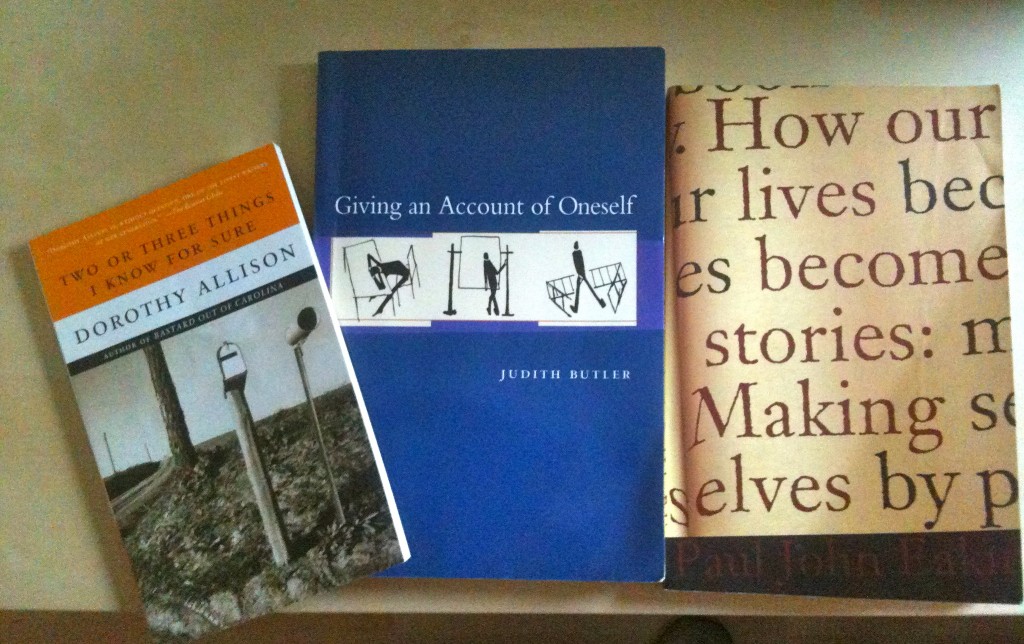I just came across this short film on Ken Burns and storytelling (via Brainpickings and originally posted on the Atlantic):
I was struck by a particular comment that Burns makes as he discusses why we tell stories:
We tell stories to continue ourselves. We all think an exception is going to be made in our case, and we’re going to live forever. And being a human is actually arriving at the understanding that that’s not going to be. Story is there to just remind us that it’s just okay.
I’m troubled by his claims here. Why? I agree with them to some extent, but I disagree with the overemphasis on the individual and their existential crisis. I don’t think that we tell stories just (or primarily) to continue ourselves and to comfort us in the face of our impending death. Personally, I wouldn’t want to live forever. My (sometimes urgent) need to tell stories comes from a strong sense of responsibility that I feel to pass on the stories that I know/that I’ve heard and to give an account of who I am and what I experience. Of course this need springs partially from a desire to have my own voice heard and to leave a trace after I’ve died, but it also, and more importantly, comes from a recognition that I am a self in community and beside generations of others.
As I write these lines, I’m reminded of the second farm film that I created (along with STA) about the Puotinen women as storytellers. In that video, I used Trinh T. Minh-ha’s “Grandma’s Stories,” a chapter from Woman, Native, Other, to frame the various stories. Here’s the passage from Trinh’s essay that I used to introduce me as one of the Puotinen storytellers:
Burns offers a compelling vision of the storyteller, but it is about the Storyteller-as-Self with a capital S who skillfully crafts narratives (that lie and manipulate in hopefully productive, meaningful and complicated ways, says Burns in the video) that convince us that it’s okay to die. I want to imagine the storyteller as a different sort of self who crafts stories that provide comfort and meaning to more themselves, but to and with their communities. And who shares stories that aren’t aimed at dealing with impending death, but with finding ways to help us make sense of and (hopefully) flourish in our lives.


